How Social Media is Ruining Your Life

May sound dramatic, but it’s true!
Think about the very first thing you do in the morning- besides turning off your displeasing alarm, that is. Now what about in the bathroom? At the dining table? While walking to work? Right before bed? If you answered scrolling through your phone, you are amongst the millions and billions of people in the world who cannot spend a day without social media. About 3.96 billion people (or roughly 51%) of the world’s population currently uses social media today. Statistics have shown that global internet and social media users can spend an average of 144 minutes on social media sites every day- that’s almost 2.5 hours. Plus, there are more than 1 million new users who join this club every day. Although social media can contribute positively to our lives (like with those adorable cat videos and hilariously relatable memes), psychologists and data analysts are starting to find an increase in the extremely harmful and negative sides to the virtual world. Here are a few ways in which social media is potentially ruining your life.
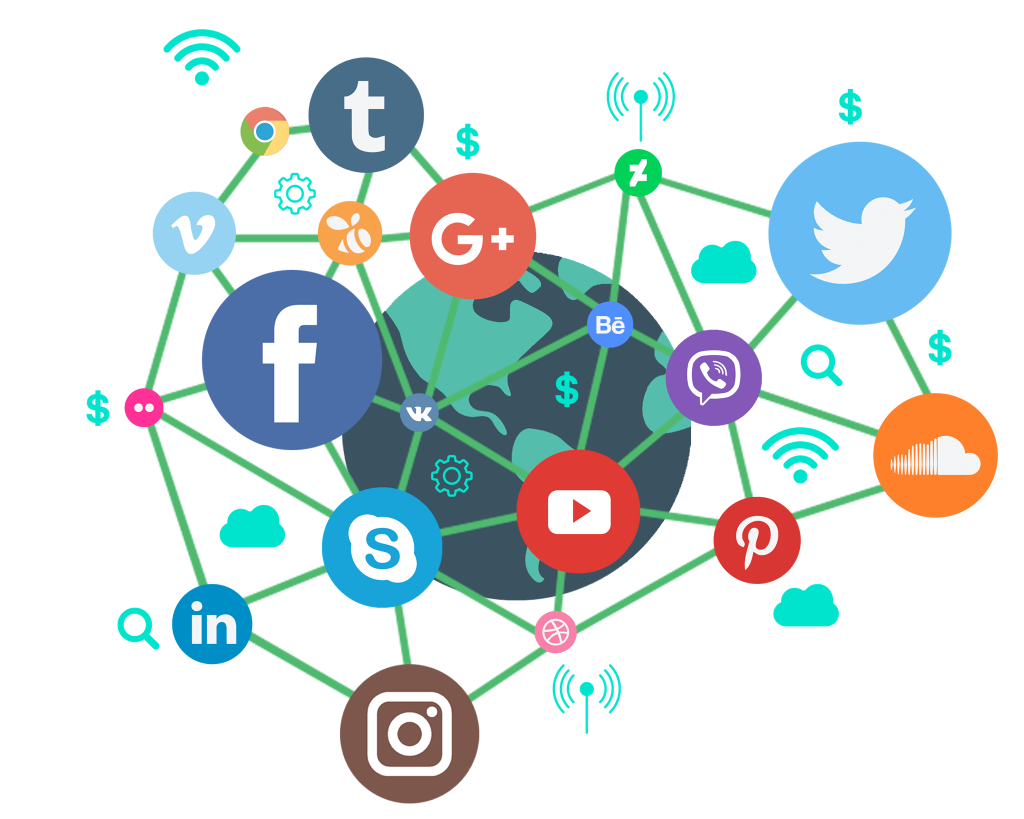
1. It Makes You Dependent On Social Acceptance
Social media runs on the one vulnerability that all humans have- social acceptance. We all want to be accepted and feel like we have a place in which we belong in this world. Social media creators use this to their advantage. Users are often found knowingly or unknowingly comparing likes, dislikes, views, and follower counts to determine if they are validated and worthy. Notice how we use the term “users” when referring to those who use social media? Well, there’s a reason for that. As American statistician Edward Tufte has said before, “There are only two industries that call their customers ‘users’: illegal drugs and software.” Let that sink in for a moment. The more you post and scroll, the more you build an addiction to gaining recognition and acceptance by your peers and your community. Studies have shown that every like you get on a social media app activates the brain’s reward center by releasing dopamine, a “feel-good” hormone which is linked to activities which bring you pleasure. This makes you get into a compulsive cycle of wanting more and more every time.
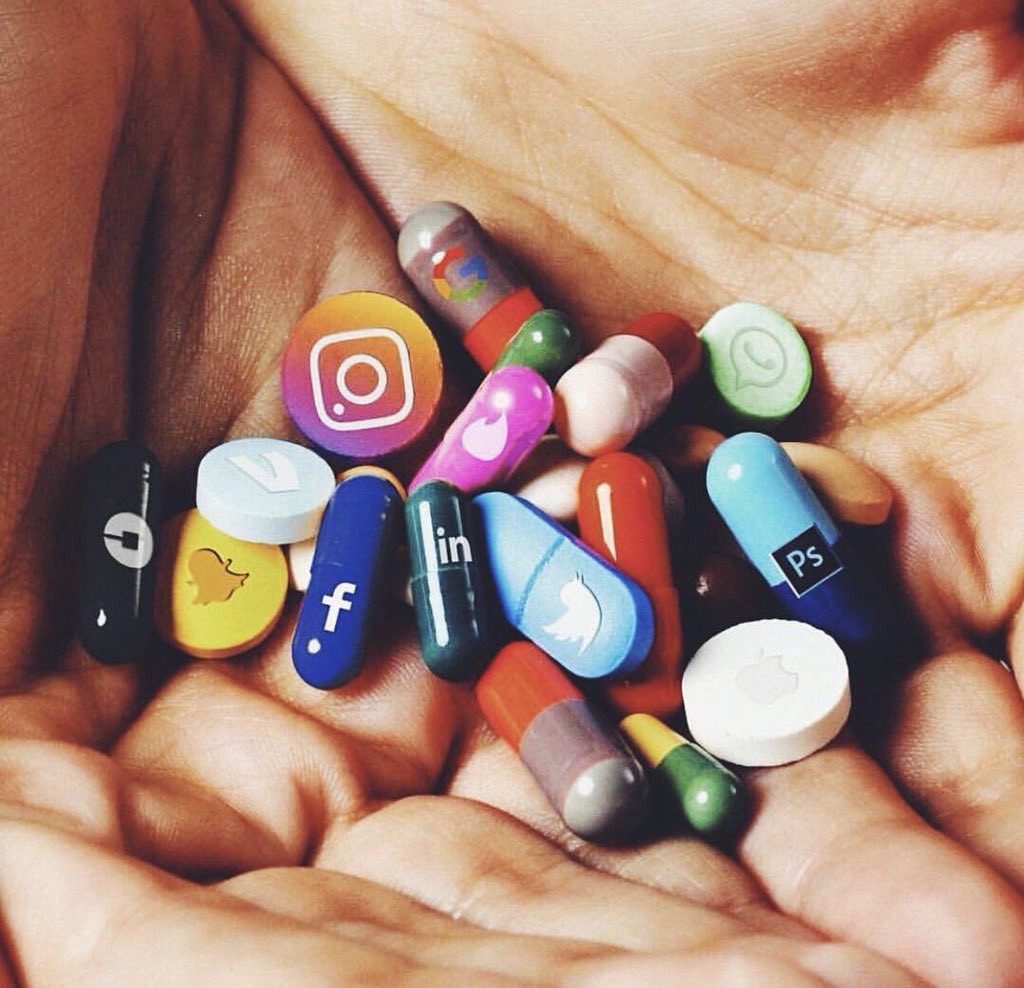
2. It Makes You Have A More Materialistic Mindset
You spend hours scrolling away on Instagram, Twitter, Youtube, TikTok, etc. taking in all these material items being shown to make you feel like you need them to live a happier life. When you are being overfed with so much information, you come to the conclusion that you need these superficial items because the problem is that you don’t have enough. This toxic cycle can lead you to constantly want more and makes you feel “less than” because everyone else looks happier when they have a certain pair of clothes or shoes which are in trend at the moment.
3. It Is Highly Addictive
How exactly does this billion-dollar industry make its money? You guessed it, it’s through the ads. Every single feature on every social media platform is designed to manipulate you into spending more time on the app or site. As the saying goes, if you are not paying for the product, you are the product. In the case of social media, the advertisers are actually the customers. Every detail on the screen is ensured to keep you on the page for longer. The bottomless scrolling of never-ending content, the way the like button turns a certain color when you click it, the bright notification you get every time someone tags you or mentions you in a comment, the read receipts, and the most notorious feature of them all- the recommended for you page. Some may be more obvious, while others lie low. The reason the content on your recommended page on Youtube, Instagram, TikTok, etc. seem so personalized is because they are. Jacqueline Sperling PhD, a psychologist at McLean Hospital describes how social media is designed to be like a slot machine. If players knew what they would be rewarded with for the game, there would be no interest to play in the first place. “The idea of a potential future reward keeps the machine in use… when the outcome is unpredictable, the behavior is more likely to repeat.”, Sperling states. This is the reason why you are so hooked onto your social media apps. So although social media sites may seem free, believe it or not, you are still paying for them. Not with money, but through providing them your data. Every click, scroll, like, and dislike is being closely monitored so that the algorithm can get smarter and more accurately understand your interests within the app. Getting creeped out yet?
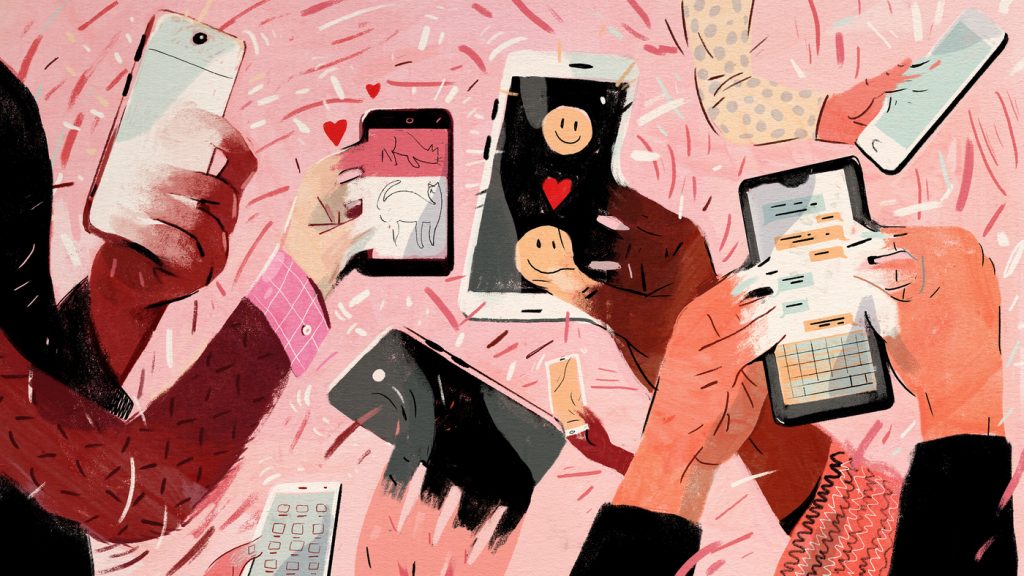
4. It Affects Your Attention Span & Cognitive Thinking Skills
Studies have shown how this addiction to social media has a direct correlation to our notably shorter attention spans and weaker cognitive skills. The fast-paced technology you are exposed to leads to overstimulation and excessive distraction, all which transpose over to the real world. These incompetent thinking skills are more notable in younger generations (particularly in younger Millennials, Gen Z, and the Alpha Gen). The National Alliance on Mental Health Illness highlights how “the brain is trained at a young age to multitask to such a high degree [through the use of technology] that it is often incapable of focusing on one task or thought at a time.”. The recent rise of TikTok, the media platform in which you can post, share, and watch sixty-second videos for entertainment (and sometimes educational purposes) has certainly not helped us avoid this constant brain exhaustion. Your mind expects the same fast-paced activity and results with the extremely stimulating and gratifying feel to occur in real life as it would on the internet and on social media. This unrealistic subconscious desire leads to an increased inability to focus or spend time on tasks away from the screen.
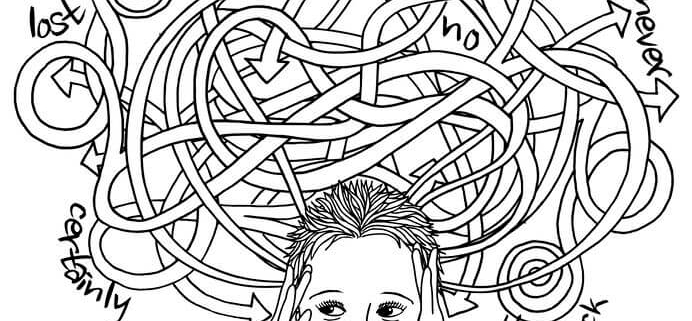
5. It Depicts A Fake World
Ever wonder why you don’t look like the fancy celebrities and Instagram models on social media? No, it’s not because you weren’t blessed with good genes. It’s because every single post you see has been made to depict an unrealistic picture. Rest assured, the celebrities and models you see on social media don’t always look that way in real life. Afterall, they are human too. It is important to understand that everything on social media is formulated to look visually appealing to our eyes. Almost every single picture you see is taken in a way that can capture the perfect pose, angle, lighting, and moment. And this is only heightened with the rising use of filters and editing software. Seeing these posts may make you feel defeated and as if your experiences are no match to the considerably more exciting and eye-catching experiences that others display on their social media pages. So the next time you catch yourself feeling like you are living an uneventful or “unadventurous” life, just remember that the videos and posts you may see on someone’s page is not necessarily a genuine depiction of their real life experiences. We all have our Netflix and nap moments- it’s just that most people prefer not to exhibit such seemingly “unappealing” or “uninteresting” events with the rest of the world.
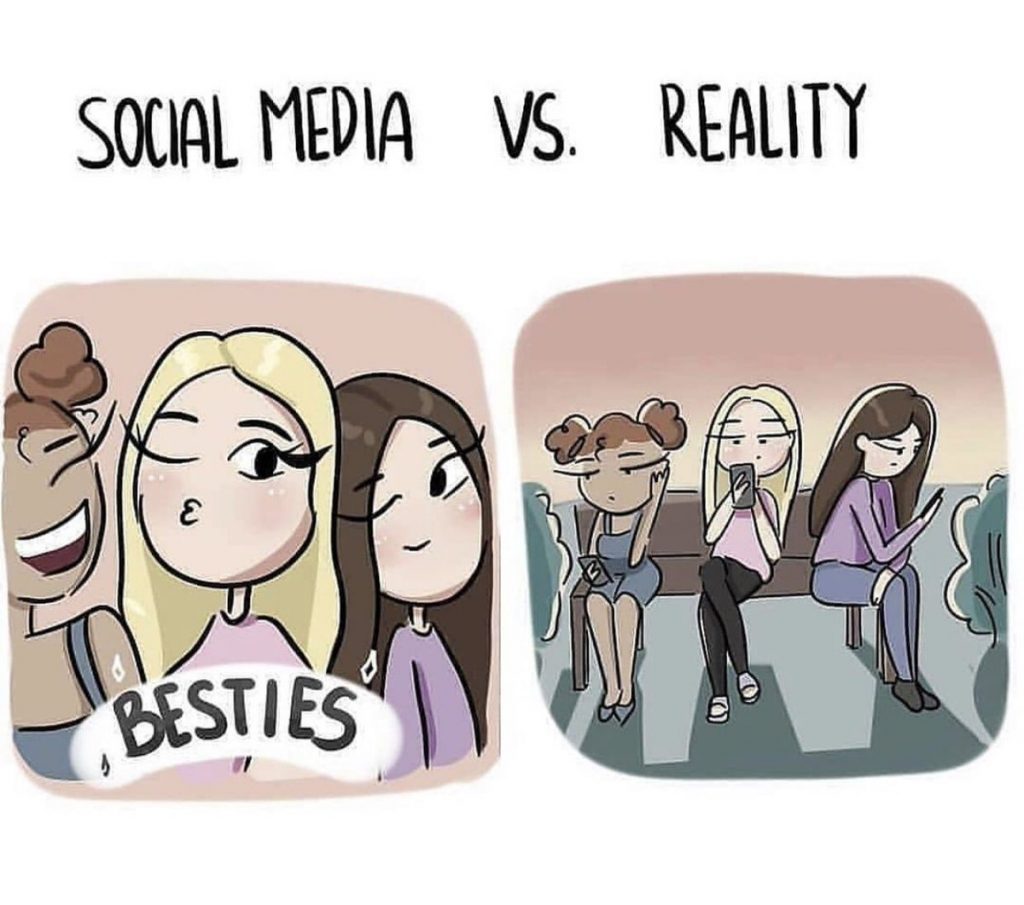
6. It Can Cause Major Mental Health Issues
Social media is the infamous culprit of a variety of different mental health issues. What may start as a mild insecurity could eventually snowball into serious mental imbalances, disturbances, or disorders with the excessive and unmonitored use of social media. Multiple studies have shown a significant association in how the heavy use of social media can lead to an increase in feelings of anxiety, depression, loneliness, and in worse cases, self-harm or even suicidal thoughts. Many of us turn to social media as a “security blanket” for when we are feeling particularly lonely or anxious. This allows us to mask underlying mental problems such as depression and anxiety which then lead to FOMO, or the fear of missing out. This fear is ingrained in almost all social media users, whether you realize it or not. It gives you a sense of inadequacy, disappointment, and overall dissatisfaction about yourself. You wonder where you went wrong, or what you did so differently that left you with a less “glamorous” life than what others seem to be having. You then turn to social media all over again and the destructive cycle continues.
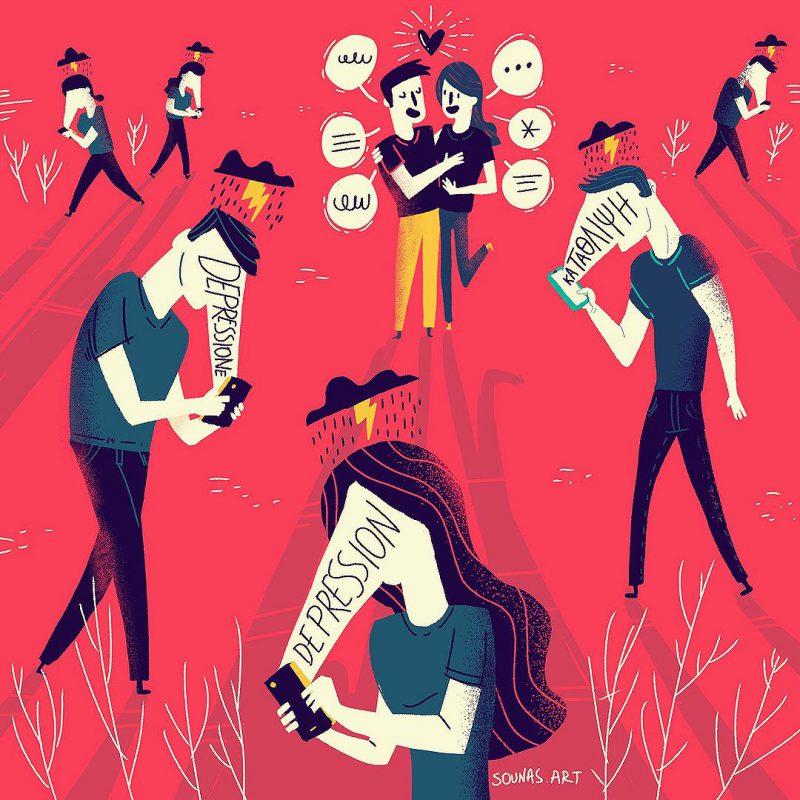
So How Can You Use Social Media In A Less Harmful Way?
Making the step towards the right direction can truly help you improve your mindset and outlook on life for the better. Here are a few ways in which you can use social media in a less detrimental way.
1. Set A Timer For Your Apps: Although it can be challenging to independently monitor and control the amount of time you spend on your social media apps, you can set a timer (or even better, a time limit!) to do the work for you. Most timers will give you a warning for when you are about to exceed your time limit. This can help you become more self-aware while providing you with better self-control.
2. Identify & Understand Your Motivations: Are you using social media to escape from reality? If so, why? If you understand the true intent behind resorting to social media so often, you can find ways to better understand and address the real problem. Feeling bored? Maybe take a walk outside or take up a new hobby. Tired or need a break from your busy day? Take quick, refreshing nap instead.
3. Be An Active User Instead Of A Passive One: Instead of passively scrolling through social media with no real reason, try to be an active user. This means that you intentionally participate in or engage with other users through commenting, sharing, or liking each other’s posts. Active interaction can really provide you with a more meaningful sense of connection than plain scrolling ever could.
4. Disable Push Notifications: Notifications can be a major distraction and the one thing that is keeping you from unlocking your true ability to be as productive as you would like to be. Every time your phone sets off with a little buzz, beep, or ding, your brain can’t resist the urge to check to see what the message says. Turning your notifications off can help you truly regain your focus and presence.
5. Set Aside Time For Offline Interactions: Missing a friend? Maybe instead of texting them or just leaving a comment on their post, meet up in person (with safe precautions, as we are in a pandemic) or do a video call. Make use of every opportunity you can to take a connection from a more surface-level online interaction, to a meaningful bonding activity or experience.
Although social media can be harmful when used excessively, it still has its many positives. Social media gives us an open platform to participate in and promote important causes, discover and learn new information, find an outlet to be self-expressive, keep in touch with friends and family around the world, network with people who share similar interests, and so much more! It’s not exactly about if you should use social media or not, but how you use it when you do. Know and understand your limits so that you can make the best educated decisions for yourself. As long as you exercise caution along the way, you can have all the fun you want!
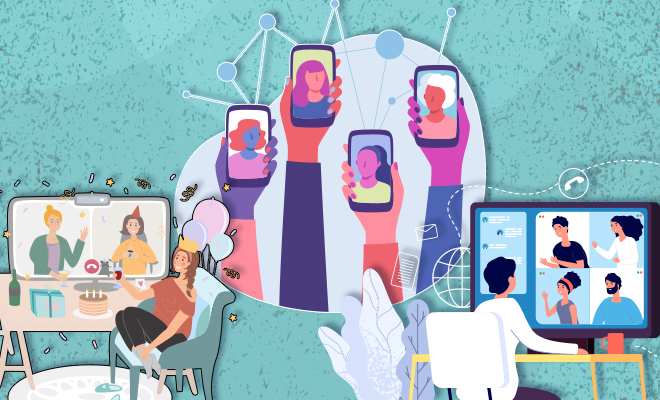
References
- Bhat, J., PysD. (2017, August 14). Attention Spans in the Age of Technology. NAMI. Retrieved February 13, 2021, from https://www.nami.org/Blogs/NAMI-Blog/August-2017/Attention-Spans-in-the-Age-of-Technology
- Buckley, C. (2019, October 20). Does time spent on social media impact mental health? New BYU study shows screen time isn’t the problem. Brigham Young University. Retrieved February 13, 2021, from https://news.byu.edu/intellect/does-time-spent-on-social-media-impact-mental-health-new-byu-study-shows-screen-time-isnt-the-problem
- Henderson, G. (2020, August 24). How Much Time Does The Average Person Spend On Social Media? Digital Marketing. Retrieved February 13, 2021, from https://www.digitalmarketing.org/blog/how-much-time-does-the-average-person-spend-on-social-media
- Montag, C., Lachmann, B., Herrlich, M., & Zweig, K. (2019). Addictive Features of Social Media/Messenger Platforms and Freemium Games against the Background of Psychological and Economic Theories. International journal of environmental research and public health, 16(14), 2612. https://doi.org/10.3390/ijerph16142612
- Robinson, L., & Smith, M., M.A. (2020, September). Social Media and Mental Health. Help Guide. Retrieved February 13, 2021, from https://www.helpguide.org/articles/mental-health/social-media-and-mental-health.htm
- The Social Dilemma: Social Media and Your Mental Health. (2021, February 9). McLean Hospital: Harvard Medical School Affiliate. Retrieved February 13, 2021, from https://www.mcleanhospital.org/essential/it-or-not-social-medias-affecting-your-mental-health




Responses